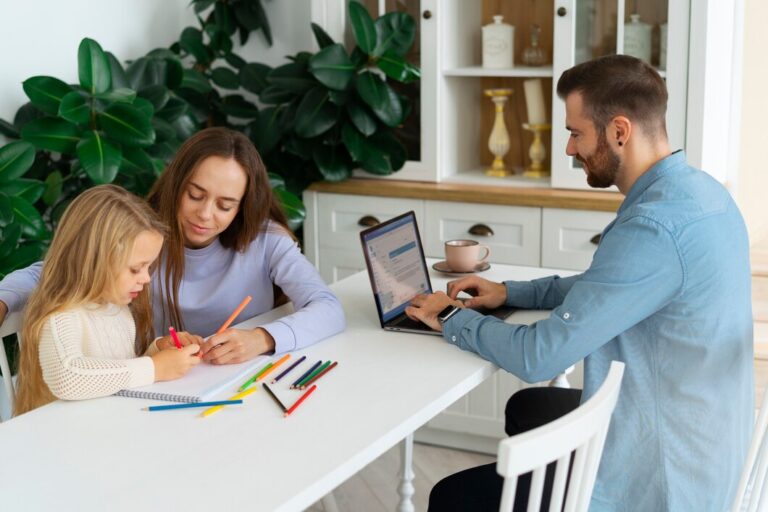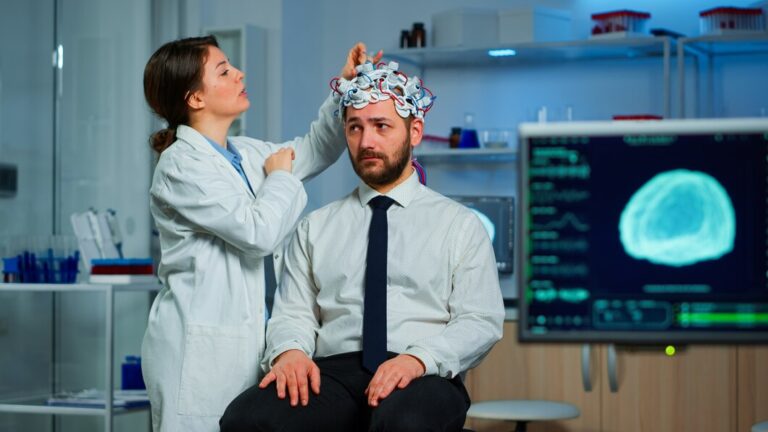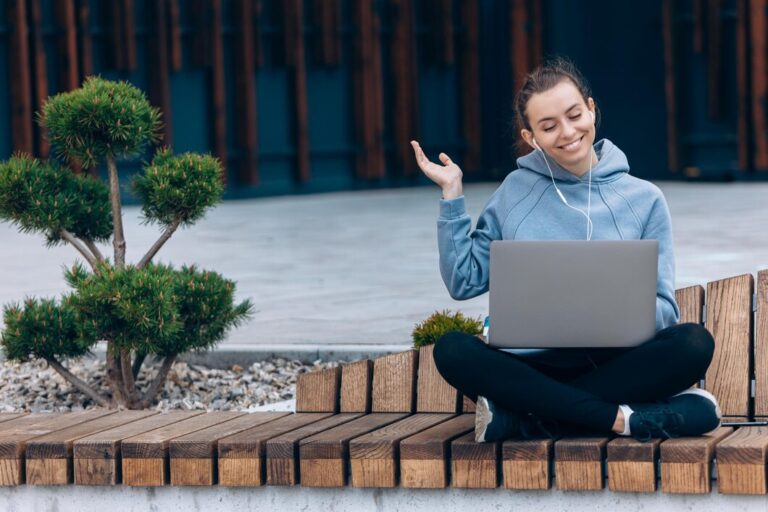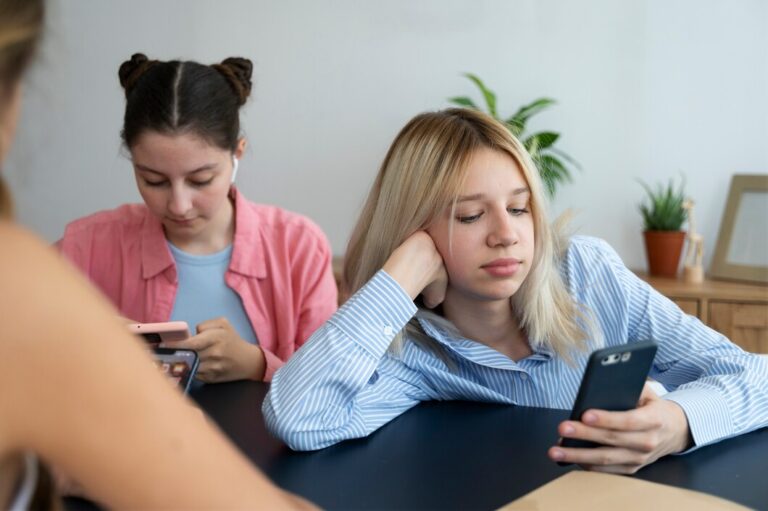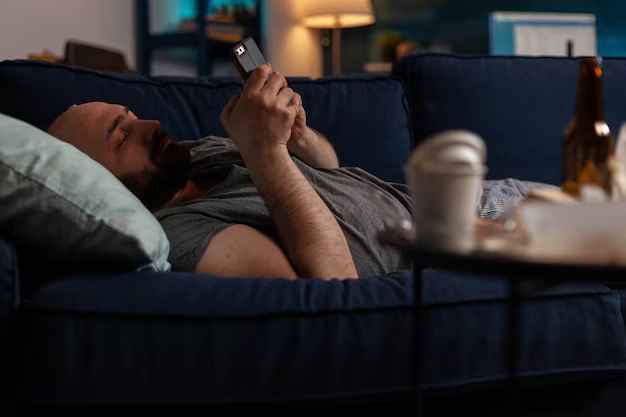
In today’s digital age, screens are an integral part of our lives. We use them for work, entertainment, communication, and staying informed. But this constant connectivity comes at a cost, particularly when it comes to our sleep. The link between screen time and sleep quality is undeniable, and understanding this connection is crucial for prioritizing restful nights and overall well-being. This blog post will delve into the science behind how screens disrupt our sleep, explore the consequences of poor sleep, and provide practical strategies to minimize the negative impact of screen time on your sleep quality. Are you ready to reclaim your nights and wake up feeling refreshed? Discover how a digital detox on sleep improves rest quality, reduces blue light exposure, and helps restore your natural sleep rhythm.
The Science of Sleep: How Screens Disrupt Your Natural Rhythms
To understand the link between screen time and sleep, we need to understand the basics of how sleep works.
The Circadian Rhythm: Your Internal Body Clock
Our sleep-wake cycle is regulated by an internal biological clock called the circadian rhythm. This 24-hour cycle controls the release of hormones, including melatonin, which promotes sleep, and cortisol, which promotes wakefulness.
Melatonin: The Sleep Hormone
Melatonin is a crucial hormone for regulating sleep. Its production is influenced by light exposure. Darkness triggers the pineal gland to release melatonin, making us feel sleepy. Light, especially blue light, suppresses melatonin production, making us feel more alert.
Blue Light: The Enemy of Sleep
Electronic devices – smartphones, tablets, computers, and TVs – emit blue light, a type of light that is particularly effective at suppressing melatonin production. This is why using screens before bed can disrupt your circadian rhythm and make it harder to fall asleep and stay asleep.
Beyond Blue Light: Mental Stimulation
The impact of screen time on sleep goes beyond just blue light. The content we consume on screens can also be highly stimulating, keeping our brains active and engaged when they should be winding down. This includes:
- Social Media: The constant stream of information and social interaction can be mentally stimulating.
- Gaming: The excitement and engagement of video games can keep your brain wired.
- Work Emails: Checking work emails before bed can trigger stress and anxiety.
- News: Consuming negative or stressful news can interfere with relaxation.
The Dopamine Connection
Engaging content keeps the brain stimulated, and delaying sleep.
The Consequences of Poor Sleep: More Than Just Feeling Tired
Poor sleep quality, often exacerbated by excessive screen time, has far-reaching consequences for your physical and mental health.
Physical Health Impacts
- Weakened Immune System: Sleep deprivation weakens your immune system, making you more susceptible to illness.
- Increased Risk of Chronic Diseases: Poor sleep is linked to an increased risk of chronic diseases such as heart disease, diabetes, and obesity.
- Weight Gain: Sleep deprivation can disrupt hormone regulation, leading to increased appetite and weight gain.
- Impaired Physical Performance: Lack of sleep can reduce physical performance, coordination, and reaction time.
Mental and Emotional Health Impacts
- Increased Stress, Anxiety, and Depression: Poor sleep can exacerbate existing mental health conditions and increase the risk of developing them.
- Impaired Cognitive Function: Sleep deprivation impairs cognitive function, affecting attention, memory, decision-making, and problem-solving.
- Reduced Emotional Regulation: Lack of sleep can make it harder to regulate your emotions, leading to increased irritability and mood swings.
- Reduced Productivity: Poor sleep significantly reduces productivity and performance at work or school.
Practical Strategies: Reclaiming Your Sleep in a Digital World
The good news is that you can take steps to minimize the negative impact of screen time on your sleep.
1. Establish a “Digital Sunset”
Set a specific time each evening (ideally 1-2 hours before bedtime) when you’ll put away all screens. This allows your body to naturally produce melatonin and prepare for sleep.
2. Create a Tech-free Bedroom
Keep all electronic devices out of your bedroom. This includes smartphones, tablets, computers, and TVs. Invest in a traditional alarm clock instead of using your phone.
3. Dim Your Screens in the Evening
If you must use screens in the evening, dim the brightness as much as possible.
4. Use Blue Light Filters
Many devices and apps offer blue light filters (sometimes called “night mode”) that reduce the amount of blue light emitted. Enable these filters in the evening. You can also purchase blue light-blocking glasses.
5. Choose Calming Content
If you’re going to watch TV or listen to something before bed, choose calming content over stimulating content. Avoid action-packed movies, exciting video games, or stressful news.
6. Develop a Relaxing Bedtime Routine
Establish a consistent bedtime routine that helps you wind down and prepare for sleep. This could include:
- Taking a warm bath or shower
- Reading a physical book
- Listening to calming music or a guided meditation
- Practicing gentle stretching or yoga
- Journaling
7. Get Regular Exercise
Regular physical activity can improve sleep quality, but avoid intense exercise close to bedtime.
8. Optimize Your Sleep Environment
Make sure your bedroom is dark, quiet, and cool – ideal conditions for restful sleep.
Limit Caffeine and Alcohol
Avoid these substances, especially in the afternoon and evening.
Conclusion: Prioritize Sleep, Prioritize Your Well-being
In our increasingly digital world, it’s crucial to be mindful of the impact of screen time on our sleep. By understanding the science behind this connection and implementing practical strategies to reduce screen exposure before bed, you can significantly improve your sleep quality, boost your overall well-being, and wake up feeling refreshed and energized. Prioritize your sleep – it’s one of the most important things you can do for your health.
Choose one strategy from this post and implement it tonight. Track your sleep quality and notice how it changes over time. Share your experiences and any tips you discover in the comments below!
Frequently Asked Questions (FAQs)
Q1: Is it okay to read on an e-reader before bed?
A1: E-readers that use e-ink technology (like the basic Kindle) are generally better than backlit tablets or smartphones, as they emit less blue light. However, it’s still best to limit any screen time before bed.
Q2: What if I work night shifts?
A2: If you work night shifts, try to maintain a consistent sleep schedule, even on your days off. Use blackout curtains to create a dark sleep environment during the day, and consider using blue light-blocking glasses during your waking hours.
Q3: How can I help my children develop healthy sleep habits in relation to screen time?
A3: Set clear limits on screen time, create a tech-free bedroom, establish a consistent bedtime routine, and be a good role model by limiting your own screen use before bed.
Q4: I have trouble falling asleep even without screens. What can I do?
A4: Consult your doctor, practice relaxation techniques.
Q5: How long does it take to see a difference?
A5: It varies, but consistency is key
